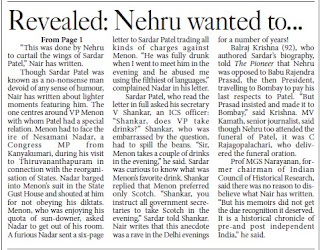down is a incidence of bala saheb i got from the link:
http://www.dandavats.com/?p=11030
By Giriraj Swami
Balsaheb Keshav Thackeray, the founder and chief of the Shiv Sena political party, passed away in Mumbai on November 17, at the age of 86. The next day, an estimated one million people assembled at Shivaji Park to bid him farewell. The Times of India reported, “The mortal remains of Bal Thackeray, a Hindutva mascot and flagbearer of Marathi pride, were consigned to flames on Sunday evening as lakhs of mourners joined the Shiv Sena founder’s grieving family to bid him a tearful farewell, with the city observing a virtual shutdown. In a spontaneous outpouring of grief, a sea of humanity, unprecedented in recent memory, descended on the streets leading from ‘Matoshree,’ Thackeray’s Bandra home, to Shivaji Park, to catch the last glimpse of the uncrowned king of Mumbai.”
Anyone familiar with Indian politics knows Bal Thackeray and his Shiv Sena. But very few people know how he intervened when Sri Sri Radha-Rasabihari’s temple in Juhu was being violently attacked.
On the morning of May 18, 1973, two large trucks from the Bombay Municipal Corporation drove onto Hare Krishna Land and fifty municipal workers carrying crowbars, chisels, and sledgehammers descended on the temple. A large truck from the police department followed close behind, from which numerous constables emerged. I rushed forward to meet the municipal officer in charge and asked him what was happening. He said that the structure was unauthorized and that they had come to demolish it. I replied that the temple was not unauthorized and that in fact I had a letter from the Municipal Commissioner to prove it. He seemed uninterested, however, and even after I showed him the letter and other documents in my file, he ordered the demolition to begin. So I approached the policemen. “We are here only to see that there is no trouble,” they said nonchalantly.
Some workers put a ladder up against the temple, and one of them started climbing up with a sledgehammer to break the roof. I threw the ladder down. Immediately three policemen grabbed me by the arms and neck and put me into the paddy wagon. Devotees rushed forward to stop the demolition squad, and one by one each protesting devotee was put into the paddy wagon. Finally, the last one left was Maithili dasi, the head pujari. Having locked the doors to the Deity chamber, she stood there, ready to knock down anyone who came near. A policeman seized her, and she punched him. Several policemen ganged up on her and hit her with their clubs, grabbed her hair, and dragged her to the paddy wagon, where we sat helplessly, witnessing the brutality and singing prayers to Lord Nrsimhadeva. Neighbors, tenants, passersby — no one lifted a finger to help.
The policemen drove us to the Santa Cruz police station and locked us up in a room. They did not allow us any phone calls. Only several long hours later were we released from police custody and able to return to the site.
Filled with anxiety, we rushed to the temple. There were Sri Sri Radha-Rasabihari dressed in Their green and silver outfit, garlanded with flowers, standing amid the fragrant scent of burning incense and the warm glow of their ghee lamps, on Their beautifully carved teakwood altar — in the middle of a vacant lot strewn with rubble and the metal bars that had once supported the walls and the roof of Their temple hall. Only two or three small pieces of the roof over Them had been removed. Otherwise, They and Their Deity room were intact. And the picture of Lord Nrsimhadeva over the doors that open at darsana time, though slightly tilted to the side, was still there too; it was as if He was looking down upon us and assuring us that He had been there to protect the Deities.
Then we were told what had happened.
While we were all rushing forward to meet the municipal workers and police — and were being taken into custody — a Gujarati devotee named Manasvi dasa was crouching in the bushes and watching. And he got the idea to phone Balasaheb Thackeray, who was known for supporting Hindu causes. Manasvi phoned and gave the report. Bal Thackeray called the Municipal Commissioner, informed him of what was happening, and told him to stop the demolition of the temple. The Municipal Commissioner, being part of the clique that had conspired against the temple, objected. Then Bal Thackeray said, “Just remember who this city belongs to.” “Okay, Balasaheb. Okay.” Then the Municipal Commissioner phoned the K-Ward Officer in Andheri, who was in charge of the Juhu area. And the Ward Officer came personally, running to the site to stop the demolition.
Thereafter, the small temple was rebuilt, and in due course a magnificent marble temple and cultural complex were built for Sri Sri Radha-Rasabihari. That temple is now a landmark in Mumbai, visited by hundreds of thousands of people every year—even several hundred thousand on Krishna Janmastami day alone.
Remembering Balasaheb Thackeray’s service to Srila Prabhupada and Sri Sri Radha-Rasabihari, ISKCON devotees from Juhu and Chowpatty joined the funeral procession and later chanted on the stage at Shivaji Park: Hare Krishna, Hare Krishna, Krishna, Krishna, Hare Hare/ Hare Rama, Hare Rama, Rama Rama, Hare Hare.
After the attack, Srila Prabhupada wrote, “We have many sympathizers and life members of our society, and I wish that they may come forward to help us in this precarious position and save the situation. Our cause is so noble, scientific, and pure that everyone, irrespective of caste, creed, and religion, should come forward and save us from this position. I hope that my appeal to the people of Bombay will not go in vain.”
Bal Thackeray came forward and helped at a most critical moment. And now we pray for his soul.

